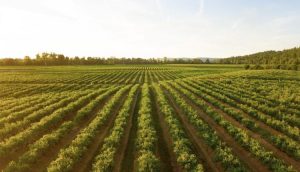Several significant announcements have recently come out of the cattle industry addressing their serious intentions to reduce Green House Gas (GHG) emissions.
In July 2019, Cargill announced they would reduce greenhouse gas emissions across their entire beef supply chain by 30% by 2030. The Green Biz article equated this move to removing 2 million cars from US highways each year.
Jump ahead to May 2021 when Cargill announced formation of a team to create and implement solar-powered wearable masks for dairy cows. Yes, by middle of 2022, Cargill will be marketing solar-powered masks that scrub the methane and GHG emissions from the cattle as they exhale.
Then in August of 2021, the National Cattle and Beef Association made “climate neutrality” an industry goal to be achieved by 2040. They provided no specific map but merely stated an aspirational goal for an entire industry that’s over 18 years away.
All these goals and aspirations are worthy of praise but make me wonder why the industry is satisfied waiting so long when there’s a solution available right now that not only reduces emissions and methane but also reduces net feed costs.
At Boveta, our patent-pending nutritional formulations reduce dry matter intake by 5-12%, and result in a similar reduction of GHG emissions and wet waste, while also reducing net feed cost.
The formulations are a rebalancing using a patent-pending science that combines older forgotten research with new research and existing ingredients. A reduction of 5-12% dry matter also reduces the footprint in acres and crop production needed to create that dry matter and the accompanying GHG emissions not accounted for in the 5-12%.
Additional research currently under way, looks to create as much as a 30% reduction in GHG emissions by making the Ruminant more efficient and effective. Reduced GHG/Methane, reduced wet waste, reduced land for crop production and lower net cost is all available today with existing feeding ingredients reconfigured by the Boveta algorithm.
Imagine a large national grocery chain able to claim their dairy and beef product lines were produced in a fashion that reduces emissions 8-12% TODAY–well ahead of 2040.
We don’t have to wait eight to eighteen years, grow seaweed, build a solar powered mask or jump through any other hoops to achieve a positive industry led GHG reduction. Boveta’s technology can do all that now and reduce cost at the same time.



